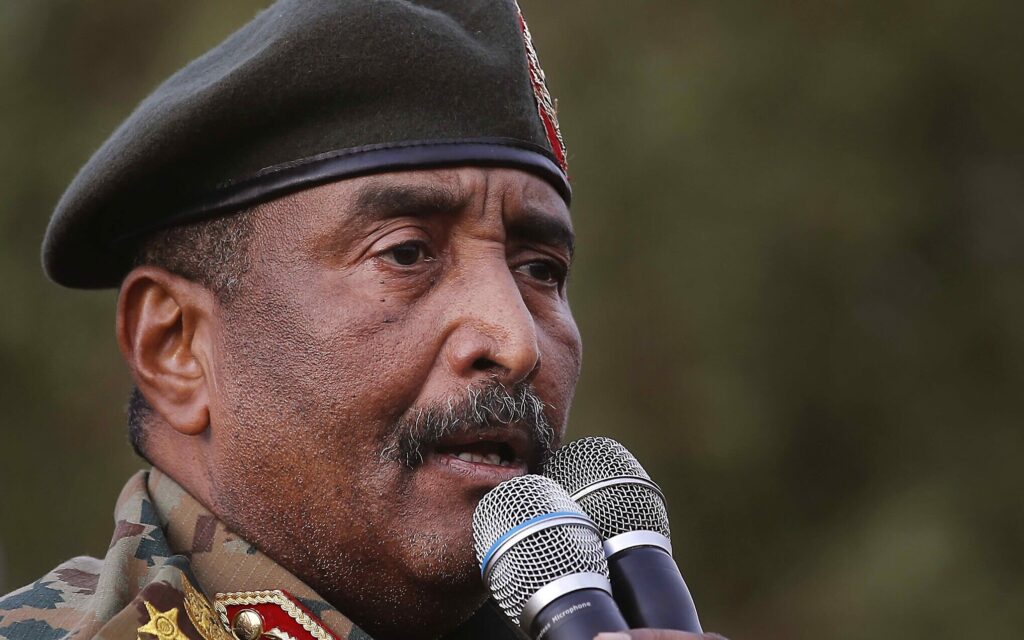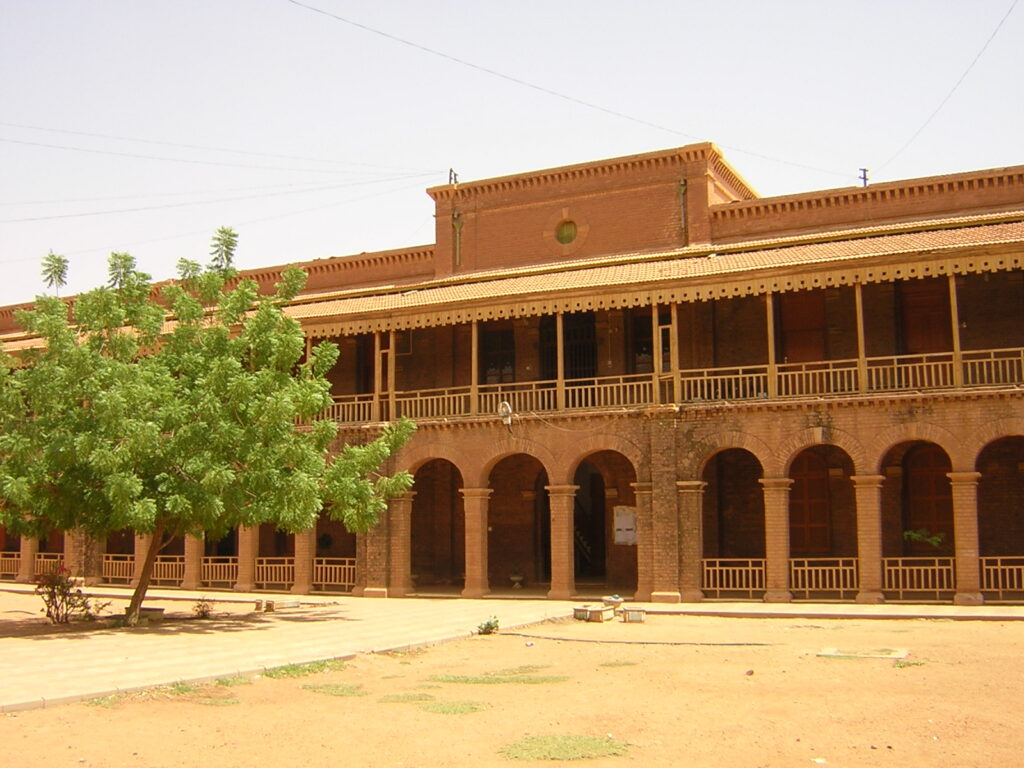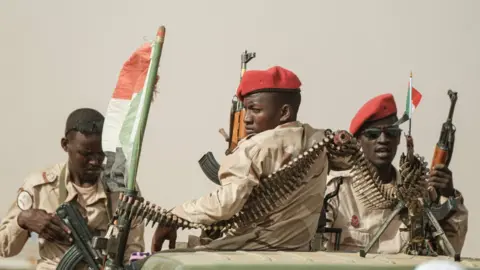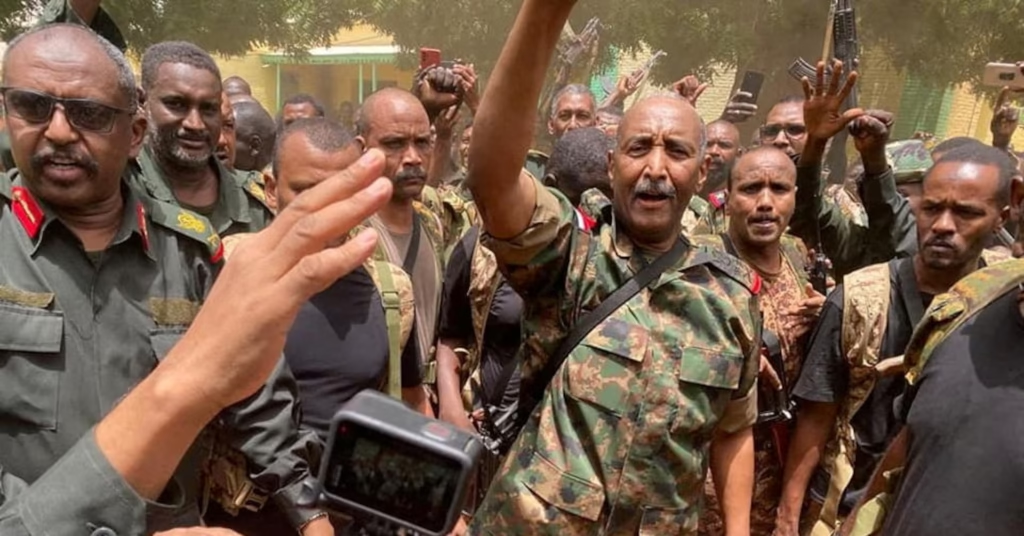
SAF sources say militias aligned with the Port Sudan-based junta are in danger of losing control of El Fasher, Darfur’s last major garrison outside Rapid Support Forces (RSF) hands, after what they described as a sweeping RSF incursion that has brought the battle close to a decision on the ground.
The sources told local outlet Erem News that Gen. Abdel Fattah al-Burhan is courting influential tribal figures—chief among them Musa Hilal—in a bid to peel away some Arab tribes toward the Revolutionary Awakening Council, weaken RSF ranks and slow the city’s fall.
The claims could not be independently verified.
According to the same sources, El Fasher had functioned as a “black hole” for the RSF, draining its fighters and logistics and forcing the group to thin its presence in central Sudan. They argued that full RSF control of the city would free up large units now tied down there, enabling subsequent operations toward central Sudan and a renewed push on Khartoum.
Politically, the sources said an RSF capture of El Fasher would consolidate control across Darfur and hand the group de facto geographic dominance in the region, leaving no Port Sudan junta inside the five states. They added that Burhan’s outreach to Hilal and other leaders also aims to buy time until the rainy season ends, when drier conditions could improve the SAF’s mobility for counter-attacks.
If El Fasher falls and pressure on RSF eases, the next targets would likely be the SAF’s war operations room in El Obeid, followed by another attempt on the capital, the sources warned.
Former Sudanese diplomat Sadiq al-Maqli told Erem News that RSF units have pushed far inside El Fasher and that only the city’s outskirts remain contested. He argued Burhan’s appeal to tribal chiefs would do little beyond prolonging the conflict, noting that Sudan’s modern wars have rarely been settled militarily. With the UN General Assembly meeting in New York, he said international attention is again turning to Sudan’s flashpoints. He added that if talks fail, the Quad (the US, UK, Saudi Arabia and UAE) could ultimately feel compelled to enforce a settlement by pressure, citing regional concerns over reported Iranian ties with Sudanese Islamists and Red Sea security.
Mohamed Ali al-Kilani, who heads a Sahel conflict-monitoring center, said recent audio messages by Minni Minnawi, Gibril Ibrahim and Abdullah Banda in the Zaghawa language point to a targeted strategy around El Fasher: rallying Zaghawa fighters to reinforce the “joint forces,” which he said have suffered heavy losses, most recently at al-Khuwei. He also claimed the messaging seeks to neutralize certain Arab tribes to ease movement in Darfur, and to draw on Chadian fighters—asserting that Banda has said 80% of the joint forces hail from Chad.
Political analyst Osman al-Nujaymi said RSF formations have reached the approaches to the SAF’s 6th Infantry Division in central El Fasher and advanced near the police headquarters and buildings within El Fasher University, which he said had been converted into a military site by foreign mercenaries allied with RSF. He called the seizure of that sector a bold strategic gain and predicted the city could be fully taken within days, a claim Reuters could not corroborate.
Al-Nujaymi argued Burhan’s “tribal alarm” strategy—leveraging Hilal’s influence to recruit Arab fighters through a tribal-security apparatus linked to military intelligence—would struggle in today’s landscape. He said the “Founding Alliance” (TASIS) political project and Darfur’s wartime administration cut across tribal lines, undercutting efforts to frame the fight as a tribal mobilization. He added that Zaghawa communities in and around El Fasher largely back the RSF, pointing to figures such as Presidential Council member al-Tahir Hajar and Interior Minister Suleiman Sandal as Zaghawa leaders aligned with the movement.
All sides’ battlefield claims remain difficult to verify amid disrupted communications and restricted access to front-line areas.



